When deciding how big of a home battery you need, it's important to assess your household's energy usage, your goals for battery storage (e.g., backup power or maximizing solar efficiency), and your budget.
Choosing the right battery will not only improve your power experience, but also reduce your electricity bill! Here's a step-by-step guide to help you determine the right battery size for your home.
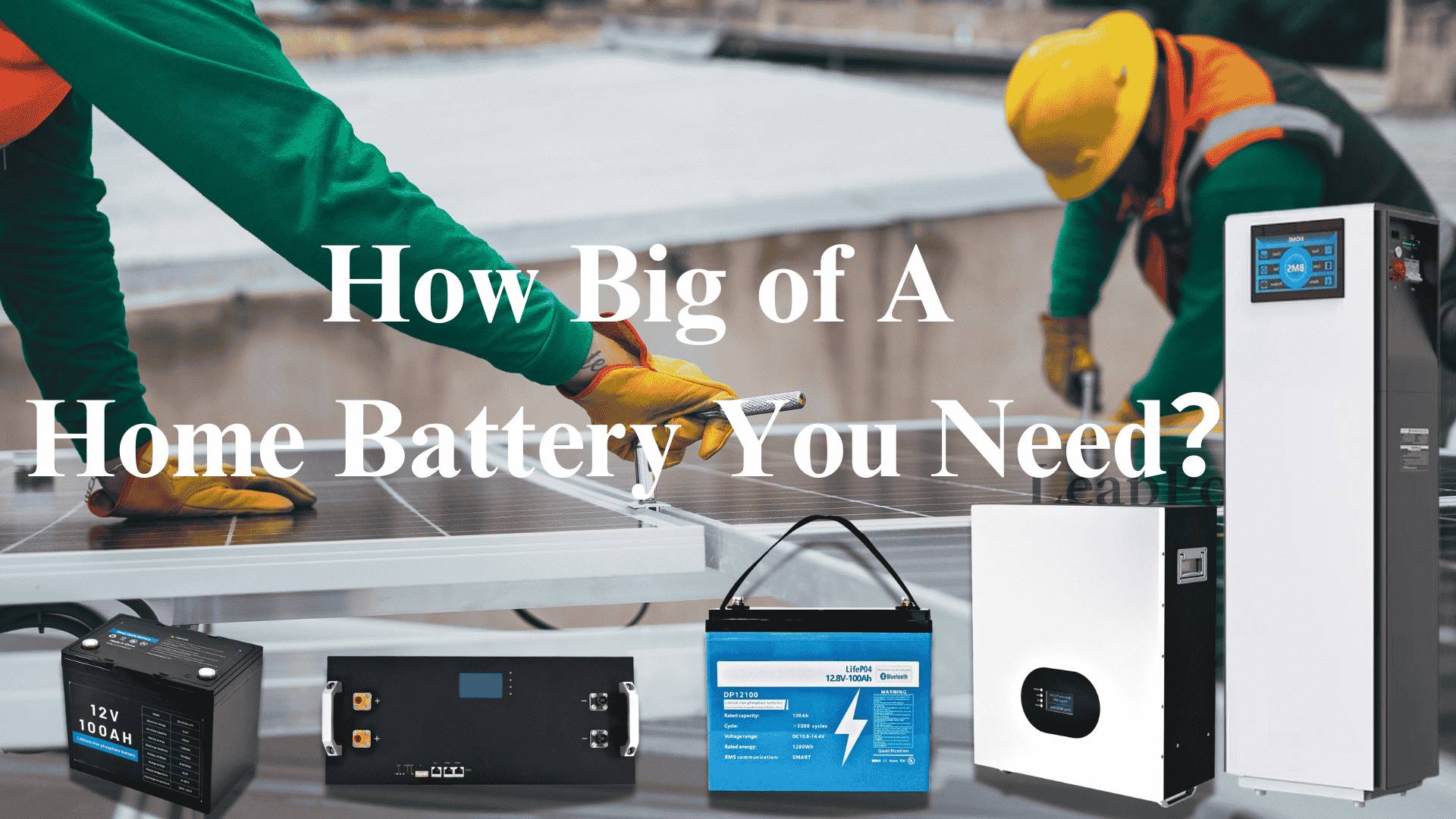
Overview:
Review your electricity bills to find your household's average daily usage, measured in kilowatt-hours (kWh). You’ll typically find this on the bill in the usage section.
Give an example. The average U.S. home uses about 30 kWh per day, you can directly use it as your basic standard to choose the battery system, but your usage could vary based on the size of your home, the number of occupants, and your energy habits.
You also can focus on the critical appliances you want to keep running during outages (e.g., refrigerators, lights, fans). Calculate the total kWh needed to run these essentials for the duration of an outage. Through this way to help you find the most suitable battery systems.
When you interested in battery, you need to consider what's the purpose of your usage. As a manufacturer, LeapPower can customize our products to meet the needs of our customers, which makes it easier and faster to find the right one for every customer.
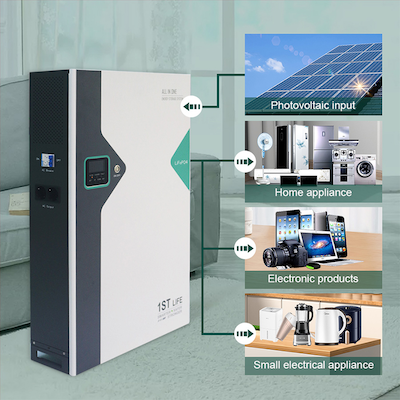
Full Home vs. Partial Home Backup:
For full home backup, you’ll need a larger system (10 kWh to 20 kWh or more, depending on usage).
For partial home backup (covering critical circuits), a smaller system (5 kWh to 10 kWh) may suffice.
Keep in mind that no battery is 100% efficient. Most lithium-ion batteries have an efficiency of around 90%, so factor in some energy loss when calculating how much storage you need.
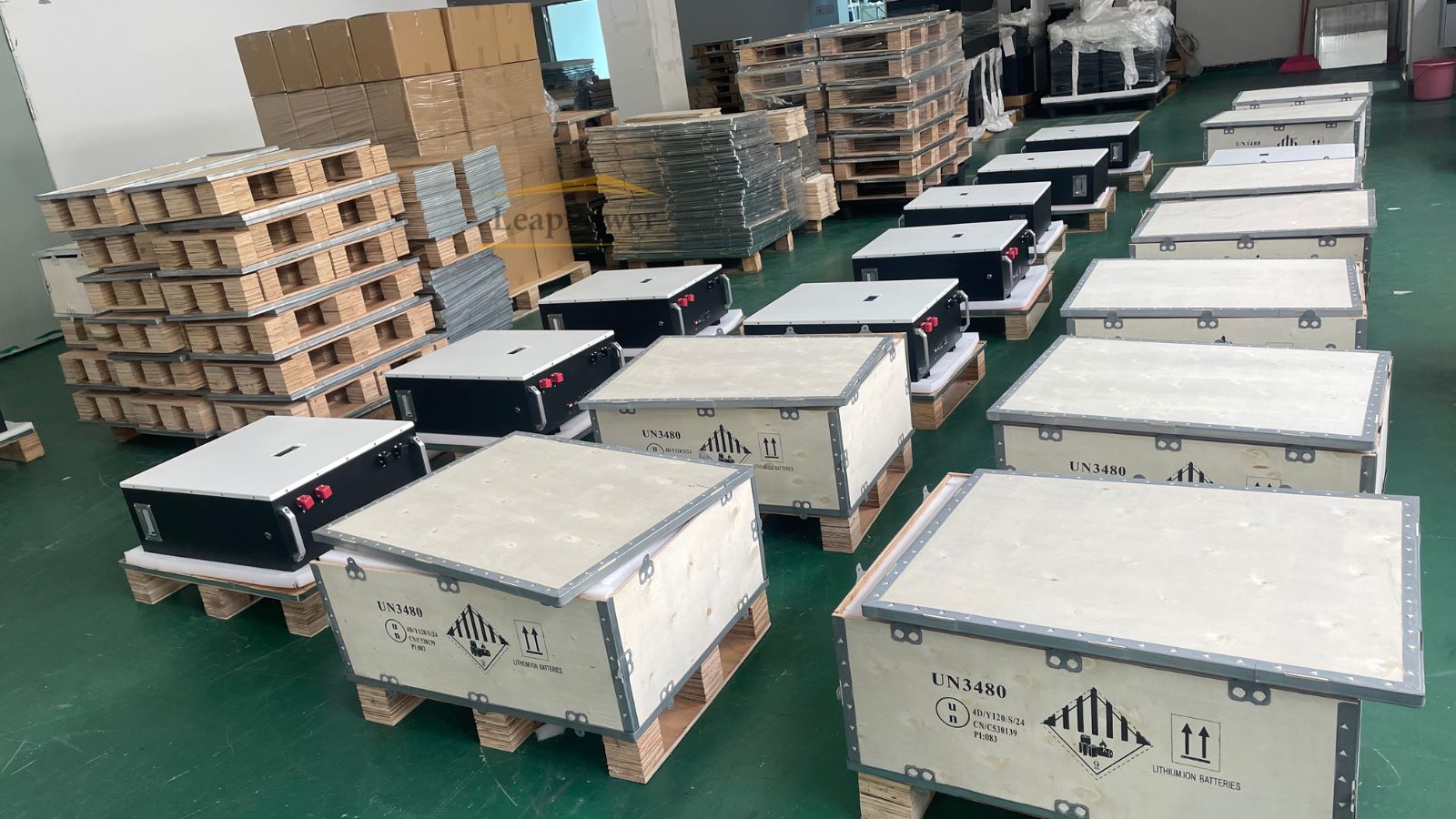
Usually commercially available batteries are allowed to be charged up to 6,000 times or more, technically this refers to the number of cycles of full charge and discharge, but this is very depleting to the life of the battery. We recommend that when using the battery, it should be charged the battery power is less than 20%.
If you have or are installing a solar power system, your battery size should match the energy your panels produce. For example, if your solar panels generate 25 kWh a day, having a 10kWh battery allows you to store up to 40% of your daily production. To store all excess power for nighttime use, you may need multiple batteries.
There are different battery size specifications for you to compare and consider.
Small Battery (5–7 kWh): Good for covering essential appliances like refrigerators, lights, and internet routers for several hours during a power outage.
Medium Battery (10–13 kWh): Can support more significant home functions, such as heating/cooling, for shorter periods, or can provide full power for essentials for over a day.
Large Battery (15–20 kWh): Suitable for homes looking for nearly full power backup or those with significant solar energy production to store for later use.

The right size home battery depends on your energy consumption, what you want to power during outages, and whether you have or plan to install solar panels. A good starting point is to calculate your daily energy use and match it to a battery size that aligns with your energy goals. A smaller 5-7 kWh battery can handle essential loads, while a larger 10-20 kWh system can power your entire home or store more solar energy.
With over 10 years of experience in this field, LeapPower, our innovative products capture and store energy from both solar panels and the grid. Reduce reliance on the grid, save money, and enjoy uninterrupted power during blackouts and high electricity prices.
Joining us, and having the right-sized battery can bring peace of mind, lower energy bills, and a greener footprint!
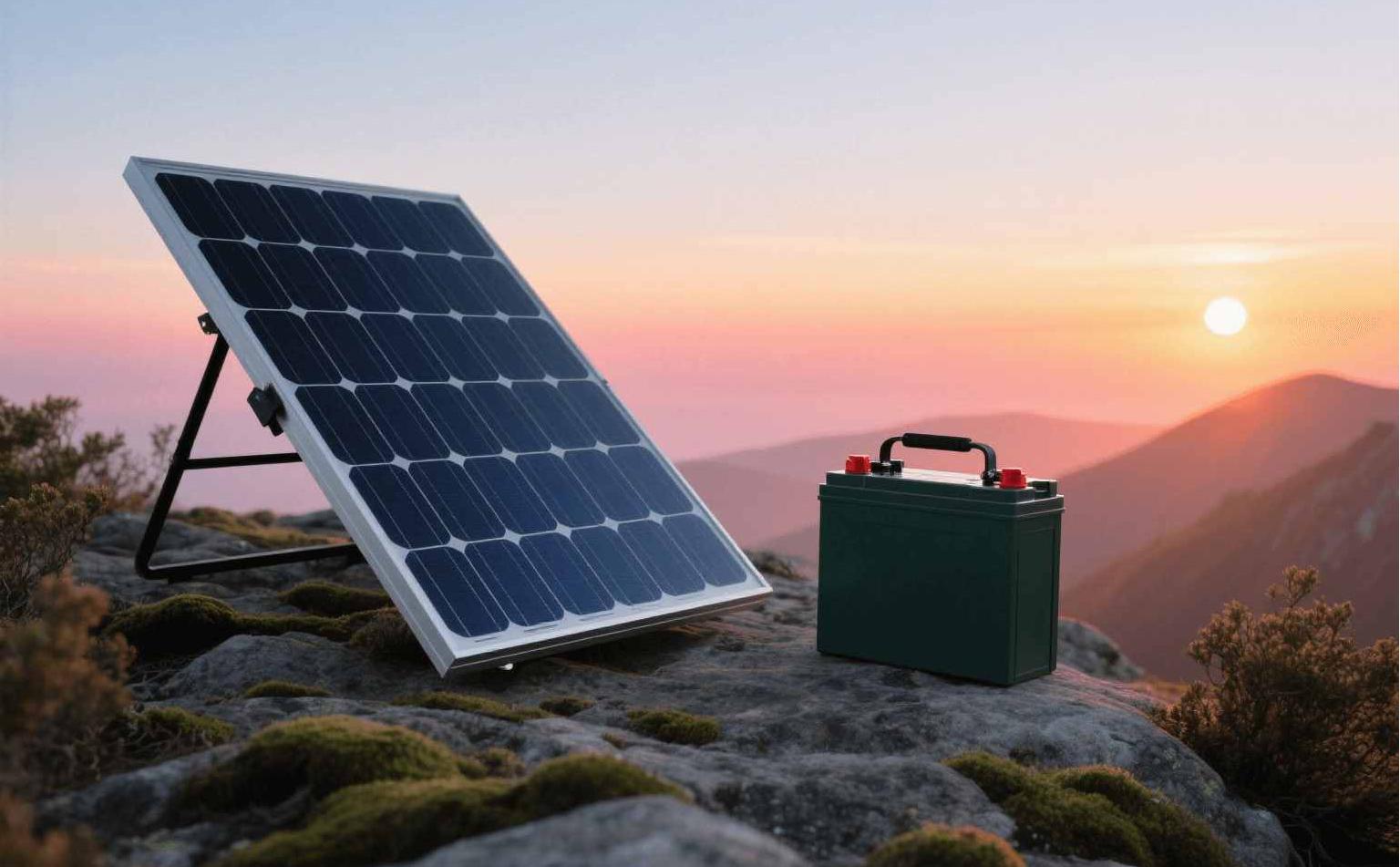

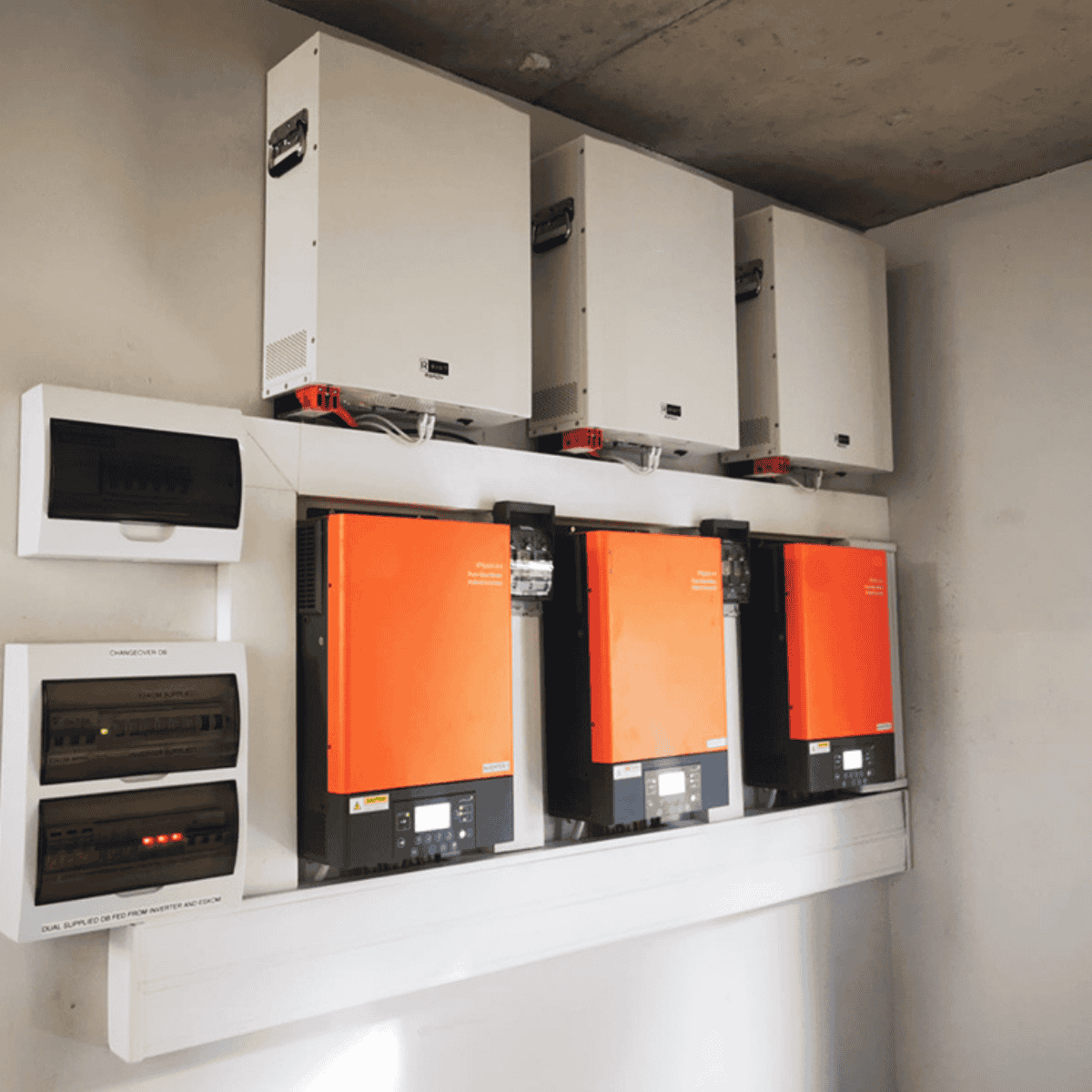

[…] and cost savings. But do you exactly know what styles of battery are suitable for your house or how large of kwh do you really need? (In our another artcle exactly told about this question, if interested, please click here to read. […]